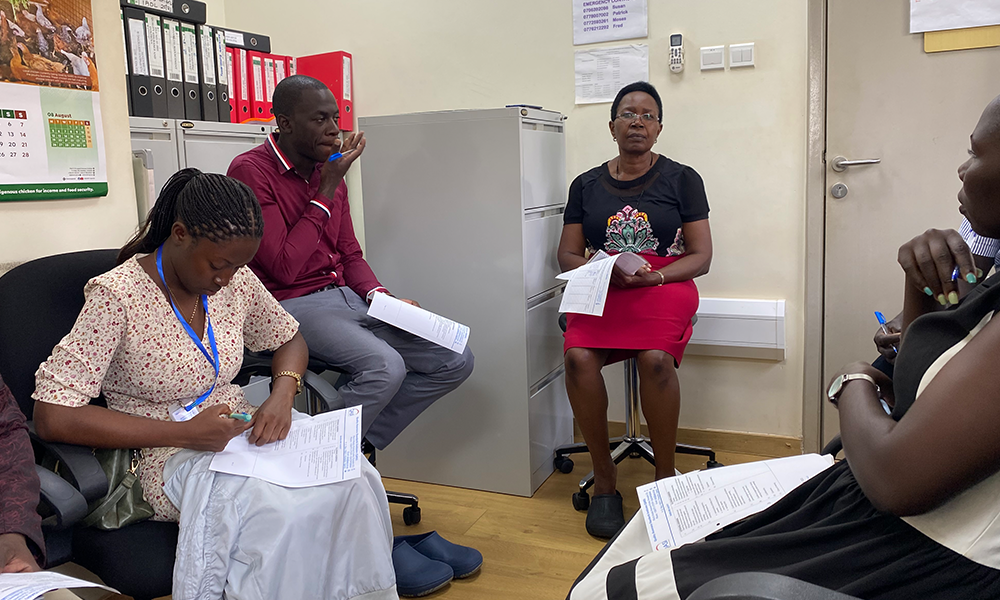Audit

Mpox Outbreak: A Global Concern
Mpox, formerly known as monkeypox, is a viral illness that can affect humans and animals. It is similar to smallpox, a disease that was eradicated in the 1970s. As of September 2024, there is an ongoing global outbreak of Mpox. This infectious disease, caused by the monkeypox virus, has been spreading rapidly in various regions. While the initial outbreak in 2022 primarily affected countries outside of Africa, the current situation is more complex and widespread.
Key points about the current Mpox outbreak:
- Widespread geographic distribution: Cases have been reported in numerous countries, including both developed and developing nations.
- Increasing number of cases: The number of confirmed Mpox infections continues to rise, raising concerns about its potential impact.
- Diverse affected populations: The outbreak is affecting people of various ages, genders, and sexual orientations.
- Public health emergency: The World Health Organization (WHO) has declared the Mpox outbreak a public health emergency of international concern (PHEIC), highlighting its significant global threat.
Symptoms of Mpox
Mpox symptoms typically appear within 3 weeks after exposure and may include:
- Fever
- Headache
- Muscle aches
- Fatigue
- Swollen lymph nodes
- Rash
The rash can appear anywhere on the body, including the face, inside the mouth, and on the genitals. It often starts as small, flat, red spots that may turn into blisters.
Transmission of Mpox
Mpox is primarily spread through close contact with an infected person or animal. This can include:
- Direct contact with a rash or sores
- Contact with contaminated materials, such as clothing or bedding
- Respiratory droplets from an infected person
Prevention and Treatment
While there is no specific treatment for mpox, supportive care can help manage symptoms. Vaccines that were developed for smallpox can also be used to prevent mpox.
To prevent the spread of mpox, it is important to:
- Avoid close contact with infected people or animals
- Practice good hygiene, such as washing hands frequently
- Get vaccinated if recommended
Read more about Mpox from the links below:
- WHO: https://www.who.int/health-topics/monkeypox
- CDC: https://www.cdc.gov/poxvirus/mpox/index.html
- Mpox in the United States and Around the World: Current Situation Summary – CDC
- Mpox – African Region – World Health Organization (WHO)
- Health Alert Network (HAN) – 00513 | Mpox Caused by Human-to-Human Transmission of Monkeypox Virus in the Democratic Republic of the Congo with Spread to Neighboring Countries
- FACT SHEET: United States Response to the Clade I Mpox Outbreak in Several African Countries – CDC
- WHO Director-General declares mpox outbreak a public health emergency of international concern
Ebola: A Deadly Viral Disease
Ebola is a severe and often fatal viral disease that is transmitted through contact with bodily fluids of an infected person or animal. It is caused by the Ebola virus, which belongs to the Filoviridae family. The largest Ebola outbreak in recent history occurred in West Africa between 2014 and 2016. More recently, there was an outbreak in the Democratic Republic of the Congo.
Symptoms of Ebola
Symptoms of Ebola typically appear within 2 to 21 days after exposure and may include:
- Sudden onset of fever
- Severe headache
- Muscle aches
- Fatigue
- Weakness
- Diarrhea
- Vomiting
- Abdominal pain
- Unexplained bleeding or bruising (e.g., from the nose, gums, or eyes)
In severe cases, Ebola can lead to:
- Internal bleeding
- Organ failure
- Death
Transmission of Ebola
Ebola is transmitted through direct contact with:
- Blood and bodily fluids of an infected person
- Infected animals (e.g., bats, monkeys, apes)
- Contaminated objects, such as needles or medical equipment
Prevention and Treatment
There is no specific treatment for Ebola, but supportive care can help manage symptoms. Vaccines are being developed to prevent Ebola, and some have shown promise in clinical trials.
To prevent the spread of Ebola, it is important to:
- Avoid contact with infected people or animals
- Practice good hygiene, such as washing hands frequently
- Use personal protective equipment (PPE) when caring for sick individuals
Read more about the EVD epidemic, prevention measures and management of cases at:
Coronavirus: A Global Pandemic
Coronavirus is a large family of viruses that can cause respiratory infections in humans and animals. While many coronaviruses cause mild to moderate symptoms, some can lead to more severe illnesses.
The COVID-19 Pandemic
The COVID-19 pandemic of 2020-2021 was caused by a novel coronavirus known as severe acute respiratory syndrome coronavirus 2 (SARS-CoV-2). This virus spread rapidly around the world, leading to widespread illness, death, and economic disruption.
Symptoms of COVID-19
Symptoms of COVID-19 can vary but often include:
- Fever
- Cough
- Shortness of breath
- Fatigue
- Muscle aches
- Headache
- Loss of taste or smell
- Sore throat
- Congestion or runny nose
- Nausea or vomiting
- Diarrhea
In severe cases, COVID-19 can lead to:
- Pneumonia
- Respiratory failure
- Death
Transmission of COVID-19
COVID-19 is primarily spread through:
- Respiratory droplets from an infected person
- Contact with contaminated surfaces
Prevention and Treatment
While there is no specific treatment for COVID-19, supportive care can help manage symptoms. Vaccines have been developed to prevent COVID-19, and they have been shown to be effective in reducing the risk of severe illness and death.
To prevent the spread of COVID-19, it is important to:
- Wear a mask
- Maintain physical distance
- Wash your hands frequently
- Avoid crowded places
- Get vaccinated
Would you like to know more about the COVID-19 pandemic? Below are the links that provide information on how to prevent the spread of the virus, detect cases, treat infected individuals, and the latest research findings from global health organizations.
- World Health Organization (WHO): https://www.who.int/about
- Centers for Disease Control and Prevention (CDC): https://www.cdc.gov/
- Uganda Ministry of Health: https://www.health.go.ug/
- Africa CDC: https://africacdc.org/covid-19/covid-19-resources/
- WHO-Africa: https://www.afro.who.int/health-topics/coronavirus-covid-19
- US CDC: https://www.cdc.gov/coronavirus/index.html
- US CDC: https://covid19treatmentguidelines.nih.gov/introduction/
- Lancet Journal: https://www.thelancet.com/coronavirus
- PubCOVID19: http://pubcovid19.pt/eng/temas.php
- WHO-Africa: https://who.maps.arcgis.com/apps/opsdashboard/index.html#/0c9b3a8b68d0437a8cf28581e9c063a9
- WHO: https://www.who.int/health-topics/coronavirus/
- WHO: https://www.who.int/emergencies/diseases/novel-coronavirus-2019
- WHO: https://www.who.int/emergencies/diseases/novel-coronavirus-2019/technical-guidance
- WHO: https://www.who.int/emergencies/diseases/novel-coronavirus-2019/global-research-on-novel-coronavirus-2019-ncov/







